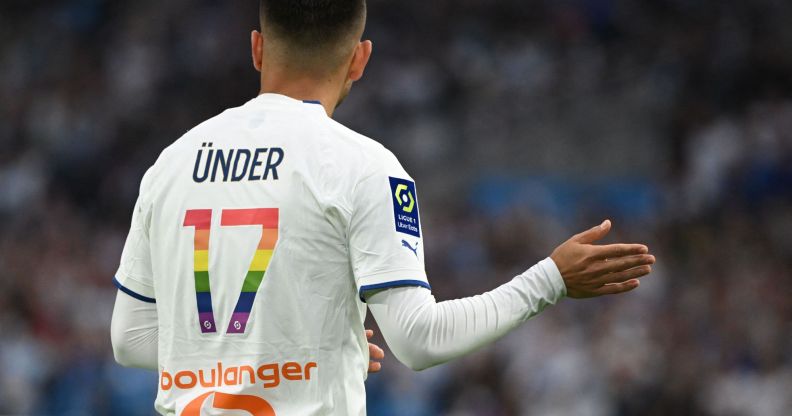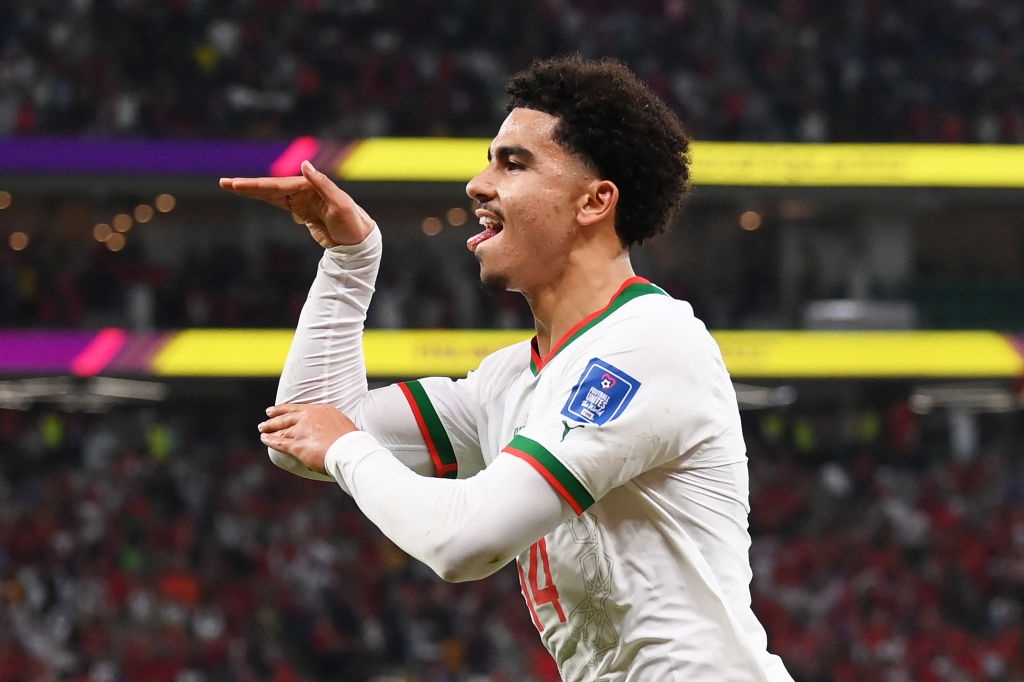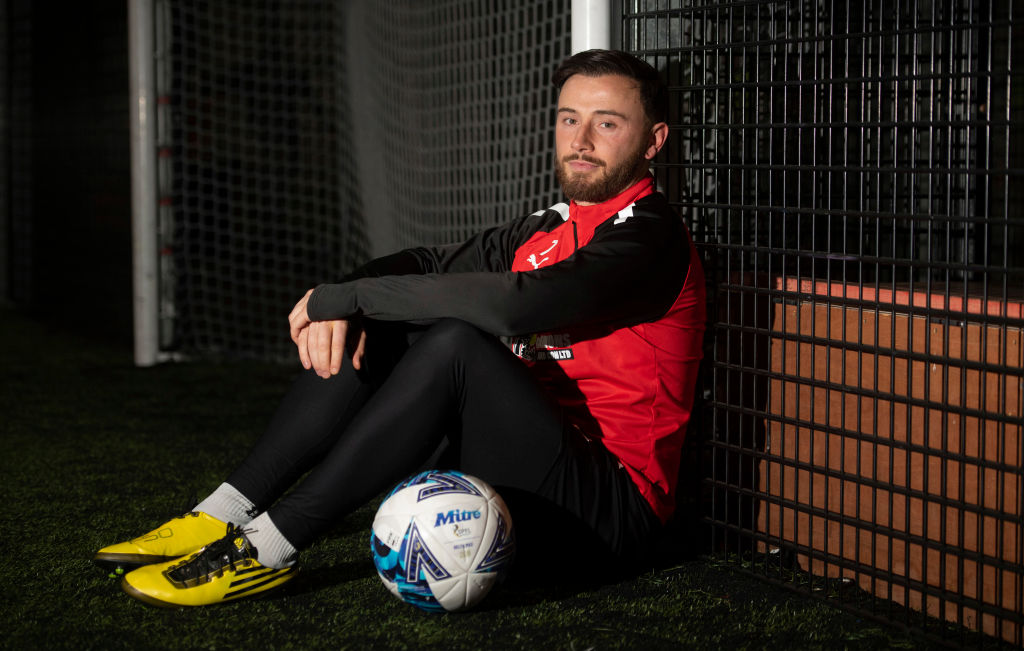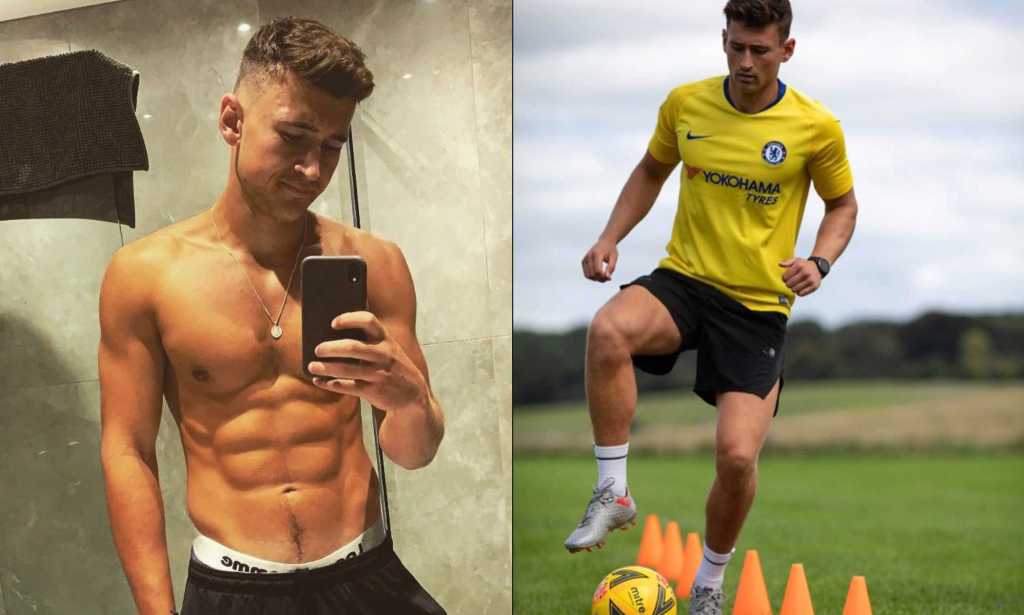Footballers refusing to wear Pride kit is causing ‘major damage’ to so-called beautiful game

Marseille’s Turkish forward Cengiz Under gestures during the French L1 football match between Olympique Marseille (OM) and SCO Angers at Stade Velodrome in Marseille, southern France, on May 14, 2023. (NICOLAS TUCAT/AFP via Getty)
Showing support to the LGBTQ+ community shouldn’t be a big ask in sport – but a simple rainbow shirt has caused a minor scandal for French football team Toulouse FC.
Controversy erupted when players in Ligue 1 and Ligue 2 were asked to wear shirts with rainbow-coloured numbers over the weekend. The initiative was to mark the International Day Against Homophobia, Transphobia and Biphobia, which takes place on Wednesday (17 May).
The problem, seemingly, was that some Toulouse players didn’t agree with the message. In the end, several footballers were removed from the Ligue 1 game against Nantes on Sunday (14 May), with the club forced to admit that some players “have expressed their disagreement with the association of their image with the rainbow colours”.
A statement posted on social media by Toulouse footballer Zakaria Aboukhlal quickly went viral. While he insisted he has the “highest regard for every individual, regardless of their personal preferences, gender, religion, or background”, he found himself unable to participate due to his “personal beliefs”.

“I sincerely hope that my decision will be respected, just as we all desire to be treated with respect,” Aboukhlal wrote on Twitter.
To say it’s a dark day for LGBTQ+ football fans seems like an understatement. The sport – particularly the men’s game – has struggled enormously to accept and embrace queer players. Every now and again, another footballer comes out and admits they felt unable to do so due to the fear of rejection from fans and their fellow players.
Zander Murray, a Scottish footballer who made headlines when he came out as gay, says the Toulouse fallout could be detrimental to queer people who support the club.
“Imagine supporting Toulouse and five of your players refused to wear a football shirt,” Murray tells PinkNews. “Like many, imagine you are still struggling with your sexuality. I know first hand how dangerous this can be. Mentally I’ve been there.”
There are, he says, very possibly gay or bi players on the Toulouse team who aren’t out yet – and even if there aren’t, the team will certainly have played against queer footballers.

“I’m in a unique position. I can put myself in their shoes – well, boots to be precise. I can tell you right now if my teammates did that pre coming out, that would have been horrific for my emotional and mental well being as a human.”
Jake Williamson, a former footballer and Stonewall sports ambassador, has little time for those who use their faith as grounds for anti-gay attitudes.
“[Aboukhlal] wants to come across as nice and he is using religion to put constraints on respect and kindness and ultimately in this instance fuel his homophobic views,” Williamson says.
“Does he have any thought for a player in his own changing room who might be a gay man?”
Williamson points out that the majority of players on the Toulouse team were happy to wear the Pride-themed kit, and most soccer players are glad to do their part when it comes to tackling homophobia.

Even so, he worries about the negative consequences of a statement like Aboukhlal’s.
“It reinforces the thoughts for gay sports people and gay people in general that being gay is a bad thing and not normal,” Williamson says.
Like Murray, he’s most worried for any Toulouse players who might be gay or bi but aren’t out yet.
“It’s a major setback and can cause huge damage to their mental health.”
Williamson hopes the Toulouse players who refused to don the shirt will give some thought to what it would feel like to be a gay or bi player and to feel unwelcome.
“Their stance is so hypocritical,” he says.

